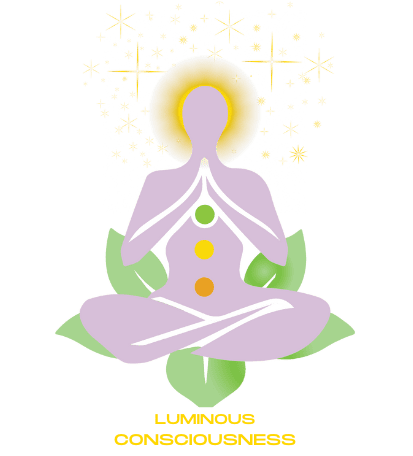Here’s a little transparency: Our website contains affiliate links. This means we may receive a small commission if you click and make a purchase. Don’t worry—there’s no extra cost to you. It’s a simple way you can support our mission to bring you quality content. Learn more at the Affiliate Disclosure page.

Let me paint you a picture of a practice as old as time: meditation. It’s carved into the walls of ancient temples and whispered in the texts of venerable philosophies. It’s a thread woven into the rich cultural fabrics across the globe. This isn’t just about closing your eyes and breathing deeply; it’s also about tapping into something more profound—your spirit.
Understanding Spiritual Growth
So, what exactly is spiritual growth? Imagine it as an inner expansion, a journey of becoming more aware and aligned with what you believe to be the true essence of life. It’s the process of peeling back the layers of your onion to reveal a core of peace, wisdom, and interconnectedness with the universe.
You’ll find out how meditation isn’t merely a quiet moment of reflection but a powerful catalyst for this kind of growth. It’s a tool that has been sharpened on the whetstone of millennia to help clear the mind and open the heart, raising your vibration and consciousness.
Exploring the Connection Between Meditation and the Spirit
Meditation is deeply intertwined with spirituality. It is the essential thread that weaves through the fabric of the spirit. The true power of this practice isn’t just in calming the mind; it’s about connecting with something greater than ourselves.
What’s fascinating is how meditation acts as a bridge to higher realms of consciousness. By quieting the mind’s chatter, you’re easing stress and opening the gates to an expansive state of awareness. This is where the spirit is said to reside, in those quiet moments of profound clarity and connection. Many studies have proven that some types of meditation can reduce the level of cortisol in our blood – the primary cause of stress that leads to other diseases.
Countless personal accounts and testimonials speak to the transformative effects of regular meditation. From life-altering epiphanies to profound inner peace, the stories are as diverse as the practices people adopt. I am a living witness to this practice.

But this isn’t just about anecdotes. Let’s talk about science, too. Studies show that meditation can change the brain—a concept known as neuroplasticity. Consistent practice can increase the concentration of gray matter in self-awareness, compassion, and introspection. That’s something to ponder.
Let’s transition into the next part, where you’ll learn how to weave meditation into your daily routine. Remember these connections because they are the groundwork for the life-changing practices we’ll explore in the next section.
Practical Guidelines for Incorporating Meditation in Daily Spiritual Practice
So, you’re determined to harness the power of meditation for spiritual growth? Fantastic. Now, the next step is integrating it into your day-to-day life. This isn’t just about carving out time; it’s also about choosing a meditation style that resonates with your core.
To start, let’s consider the different types of meditation. There’s mindfulness, which trains you to pay sharp attention to the present moment. There’s transcendental meditation, focusing on a mantra to draw your consciousness inward. And there’s guided meditation, where someone leads you through a visualized journey. All have their merits, but which one speaks to you? A Beginner’s Guide To Meditation Tips and Techniques will come very handy at this stage.
Finding the ideal spot for your meditation practice is critical. You want somewhere quiet, where disturbances are few. It can be a corner of your room, a place in your garden, or even a dedicated meditation room if you’re lucky to have the space.

Now, the meat of it is beginning your practice. Start by sitting comfortably, closing your eyes, and focusing on your breath. You’ll notice a lot of chatter in your mind. Don’t sweat it. Acknowledge the thoughts and gently bring your focus back to your breath or mantra.
You might worry about doing it ‘right.’ Here’s my advice: don’t. Meditation is a personal journey. What works for one may not work for another. Choose something that resonates with you, and remember, your first attempts can be imperfect.
Naturally, you’ll face obstacles. It could be restlessness, skepticism, or time constraints. See these as opportunities to deepen your practice, not as failures. You can constantly adjust your approach later.
The key to success with meditation is consistency. Even ten minutes daily is enough to make waves in your spiritual progression. Stick with it, and you’ll discover profound changes within yourself. The best way to stay consistent is to incorporate it into your schedule as the first thing to do after brushing your teeth before even going to the gym.
The Long-term Benefits of Meditation on Spiritual Well-being
Suppose you’re going to commit to meditation for spiritual growth. In that case, you’re likely curious about the dividends this investment might pay in the long run. The consistency of your practice dictates the magnitude of these benefits. Meditation isn’t a quick fix; it’s more like nurturing a garden. The more care you put in, the more beauty you’ll see unfold.
Inner peace is the cornerstone of spiritual well-being, and meditation is your pathway. Over time, you can expect to notice a profound inner tranquility that doesn’t ruffle easily, even when external circumstances try their hardest. It’s as if you’re developing a resilient layer of serenity that buffers you from the jarring noises of everyday life.
The ripple effect of meditation extends into your emotional realm as well. By fostering mindfulness, meditation helps you become more empathetic and compassionate—not just toward others but also toward yourself. Self—awareness blooms as you become a more observant witness to your thoughts and feelings rather than their captive.
I’ve encountered various case studies that highlight the life-altering impact of meditation. People from all walks of life report transformative experiences, citing mental and emotional shifts and sometimes even profound spiritual awakenings. These anecdotes are powerful but backed by research indicating greater life satisfaction.
You may wonder, ‘How will I know if I’m growing spiritually?’ It’s a fair question. Spiritual growth is profoundly personal and can be subtle. You might notice it in the calmness of your reactions, the depth of your relationships, or an overall sense of fulfillment. It doesn’t shout for attention; instead, it’s a knowing smile in the mirror, a silent acknowledgment of your journey’s value. People will start to notice profound changes, and you’ll get compliments. Just listen and pay attention to your environment – you’ll know. We will go deeper into this subject of spiritual growth in other posts.
I hope you harness meditation’s power to enhance your spiritual well-being. Trust that your practice, patience, and persistence will guide you to a more enlightened state of being. Remember, each moment of mindfulness is a step toward the vast horizon of spiritual growth, and every deep breath you take plants another seed in the garden of your soul.

You can also read 10 Ways Meditation Can Improve Your Daily Life to learn more.
Take Something With You before You Leave
If you’ve made it this far, I want to express my gratitude for taking the time to read. As a token of appreciation for your interest, I offer you three complimentary gifts.
Whether you’re beginning your journey of self-discovery, aiming to broaden your consciousness, or seeking harmony between your busy life and a deeper connection, feel free to choose the gifts that resonate with you. After all, it’s on the house.




This article beautifully captures the essence of meditation and its profound impact on spiritual growth. I love how you likened spiritual growth to peeling back the layers of an onion to reveal inner peace and wisdom it’s such a relatable metaphor.
Meditation truly is a timeless practice that connects us to something greater than ourselves. I’ve personally experienced the calming and transformative effects of regular meditation, and it’s incredible how it enhances self-awareness and emotional resilience. Looking forward to exploring more about the long-term benefits and how to recognize spiritual growth in future posts. Thanks for sharing such insightful content!
Hey Kavitha,
Thank you for your lovely feedback! I’m delighted to hear that the metaphor of spiritual growth as peeling back the layers of an onion resonated with you. It’s a powerful image for understanding the journey towards inner peace and wisdom.
It’s lovely to hear about your personal experiences with meditation and how it has enhanced your self-awareness and emotional resilience. Meditation is a bridge to something more splendid, helping us connect with more profound aspects of ourselves and the universe.
I’m excited to explore the long-term benefits of meditation and ways to recognize spiritual growth in future posts. There’s so much to uncover, from deepening our practice to understanding the subtle changes within us over time.
Thank you for your encouragement and insightful comment. Stay tuned for more content, and I look forward to continuing this journey with you!
Warm regards,
Eric.
Hello Eric,
This is a wonderfully insightful post! The way you have woven the connection between meditation and spiritual growth is both enlightening and inspiring. It is fascinating to see how ancient practices continue to influence our modern lives and contribute to our well-being.
I am especially intrigued by the long-term benefits of meditation that you have highlighted. The analogy of nurturing a garden truly resonates with the gradual and beautiful transformation meditation can bring into one’s life. It is a gentle reminder that spiritual growth is a journey, not a destination and each step along the way is meaningful.
How have you integrated meditation into your daily routine, and what changes have you noticed in your spiritual and emotional well-being as a result?
Looking forward to more posts like this one!
Hi Starlight,
I am grateful for your kind words and insightful reflections on the post.
Incorporating meditation into my daily routine has been immensely beneficial. I make it a point to meditate twice a day. My first session occurs right after I brush my teeth in the morning, before heading to the gym, unless I decide to shower first. This morning meditation sets a positive tone for the day, providing me with the resilience to tackle any challenges that may arise. It allows me to center myself, observe my thoughts and emotions, and respond thoughtfully to situations rather than impulsively. I meditate before checking my phone or turning on the TV. My second session occurs anytime after 3 pm, before dinner, helping me to unwind and gather energy for the evening ahead. For me, meditation is like a natural cup of coffee.
I value your engagement with this topic and eagerly anticipate sharing more insights and experiences in future posts. Your support and encouragement mean a lot.
Cheers!
Eric.